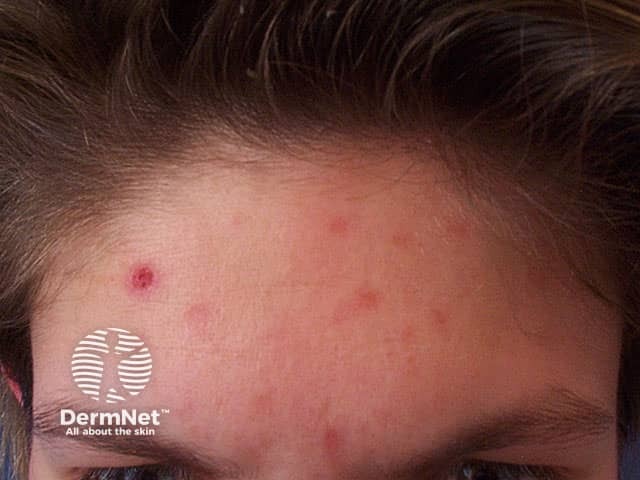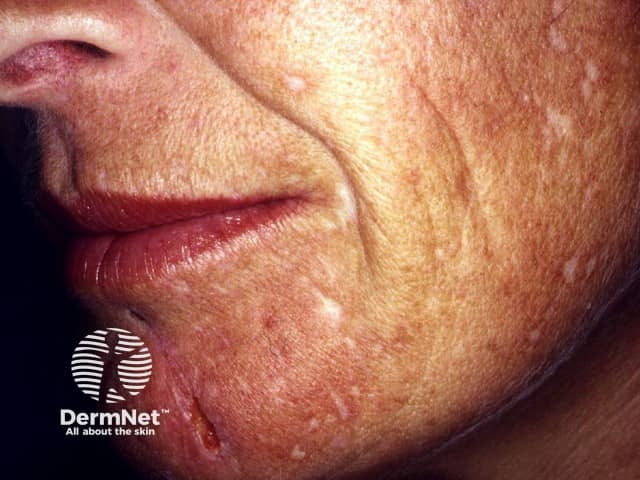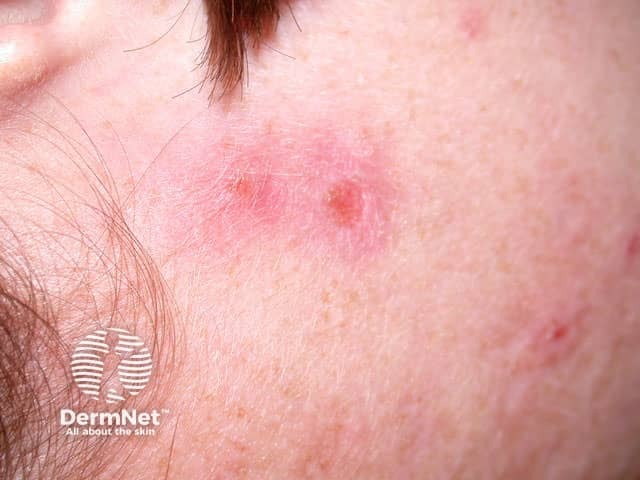Main menu
Common skin conditions

NEWS
Join DermNet PRO
Read more
Quick links
Author: Dr Amanda Oakley, Dermatologist, Hamilton, New Zealand, 1999. Reviewed and updated by Dr Amanda Oakley, Dermatologist; Vanessa Ngan, Staff Writer; and Clare Morrison, Copy Editor, April 2014.
Acne excorie is a term used to describe scratched or picked pimples. It may also be spelled the French way, acné excoriée.

Acne excorieé

Acne excorie

Acne excorie
Most people squeeze or pick some of their spots in an attempt to be rid of them. This can makes the acne look worse. The acne may become secondarily infected and picking it may also cause scarring.
Some individuals excessively pick their spots. When their skin is examined, they have no active acne spots, only scratch marks, sores, pigmentation and scars. All the inflammatory lesions and comedones have been removed by picking or squeezing. This appearance is called acne excorie.
Most people are aware that their facial sores are due to skin picking, but they do not always admit to it openly.
Anyone who gets acne can suffer from acne excorie. It appears to be more common in females than males, particularly women with late-onset acne. Spending hours in front of the mirror can also be a sign of stress or depression. Psychiatrists may classify acne excorie with body dysmorphic disorder (bodily focused anxiety).
Sometimes it is just a bad habit that's hard to break; the acne may not actually be all that severe. In fact there seems to be two subgroups of acne excorie patients – one where patients have primary acne lesions and those who have none or hardly any acne lesions.
Acne excorie can be very upsetting and embarrassing.
Treatment of acne excorie depends on whether or not the patient has primary acne lesions. Active acne spots can be managed using acne treatment depending on their clinical severity.
Some patients with acne excorie may just need to break the habit of picking, whilst other patients may have a compulsive skin picking disorder. This may require psychological therapy and psychotropic drug treatments.